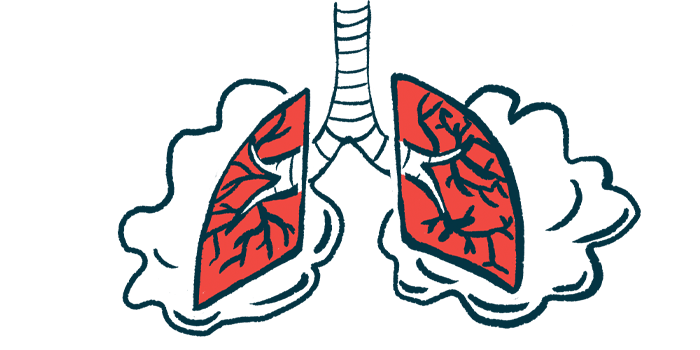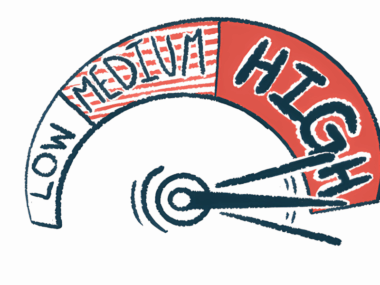Noninvasive breathing test may detect declining respiratory function
SBCT has advantages over specialized spirometry tests, such as FVC
Written by |

The single breath count test (SBCT), a noninvasive and inexpensive pulmonary function test, may help evaluate respiratory function and identify when symptoms worsen with myasthenia gravis (MG), a review of several studies has found.
A cutoff value of 25 or higher in the SBCT was indicative of normal respiratory muscle function in MG.
The study, “Single count breath test for the evaluation of respiratory function in Myasthenia Gravis: A systematic review,” was published in the Journal of Clinical Neuroscience.
MG is an autoimmune disease marked by muscle weakness brought on by an impairment in nerve-muscle communication. The muscles used for breathing may also be affected, with symptoms ranging from mild to severe. Myasthenic crises are when symptoms worsen and occur when muscle weakness is so severe patients go into respiratory failure and require ventilation.
Lung function is typically evaluated using spirometry tests, such as forced vital capacity (FVC), which measures the total amount of air a person can forcibly exhale after a deep breath. The specialized equipment and training required for these tests is not always available, however. Also, some patients’ facial muscle weakness may affect these tests’ usefulness.
An SBCT can overcome these limitations and has been proposed as a potential way to assess respiratory function in MG. It’s used to determine the maximum number of counts a person can reach before needing to take another breath.
A team led by researchers at Flinders University in Australia reviewed studies to find the best way of performing SBCT in MG patients and to evaluate its effectiveness at assessing respiratory function.
The review included eight studies published until October 2022 that were identified across three databases (PubMed, EMBASE, and Cochrane library).
Support for SBCT in MG
The most commonly used SBCT method instructed patients to take a deep breath and then count in a normal voice at a rate of about two counts a second. Most studies didn’t refer to the position of the patient and the language used for counting. One study mentioned patients were seated upright and counted in English and another study used Spanish.
One study used SCBT on the same patients for more than two years. Its main goal was to use the test to assess the effects of Soliris (eculizumab). After starting treatment, SBCT increased from a mean of 28.13 breaths to 50.26, results showed. These findings support SBCT’s ability to evaluate MG treatment responses, the researchers said.
Another study of 45 MG patients showed SBCT had a significant positive correlation with the performance of FVC. This finding was supported by another study with 171 patients that found a moderate correlation between SBCT and FVC.
The selected studies indicated a cutoff value of 25 or higher was indicative of normal breathing function.
Using this value, one of the studies found SBCT could identify a respiratory exacerbation with a sensitivity of 80% and a specificity of 60%. Sensitivity is a test’s ability to identify those with a given impairment, while specificity refers to its ability to identify those without it.
Other potential advantages of SBCT include its low cost and good tolerance. It can be easily performed at the bedside or an outpatient setting, even over the phone, making it a convenient tool for monitoring respiratory function.
The review’s findings suggest SBCT may be valuable for evaluating respiratory function in MG. More research is needed to establish standardized protocols and determine its best use in clinical practice, however.
“The SBCT has a moderate correlation with FVC and can assist in the identification of MG exacerbation. The test is well tolerated, quick, and inexpensive. Further studies may improve the utility of SBCT through the description of serial assessments and SBCT evaluation in languages other than English and Spanish,” the researchers wrote.




Leave a comment
Fill in the required fields to post. Your email address will not be published.